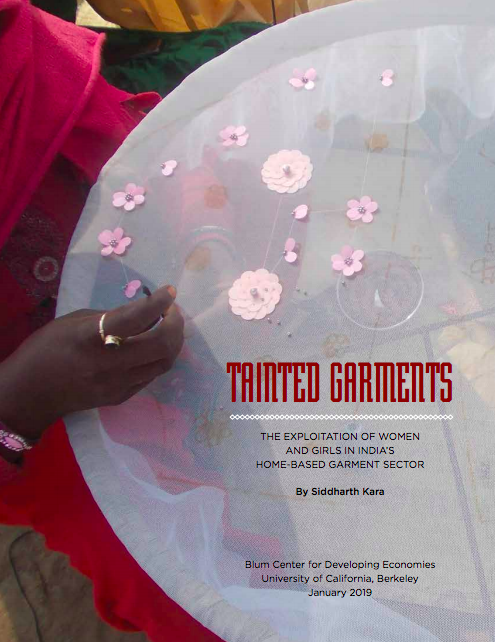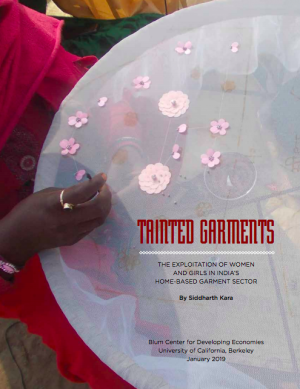Introduction
Tainted Garments: The Exploitation of Women and Girls in India’s Home-based Garment Sector by Siddharth Kara offers the most comprehensive investigation yet into the conditions of work for women and girls in India’s home-based garment sector. Approximately 85 percent of the home-based garment workers documented for the report exclusively work in supply chains for the export of apparel to major brands in the United States and European Union. These Indian workers consist almost entirely of women and girls from historically oppressed ethnic communities who earn approximately $0.15 per hour. The primary aim of the report is to provide insights into the lives of these workers in the hope that governments, companies, and nonprofits will be able to better coordinate on solutions to address the exploitation documented.
In the News
The Invisible Women and Girls Who Make Your Clothes, Siddharth Kara, Reuters, February 14, 2019
About the Author

Siddharth Kara is a research fellow at UC Berkeley’s Blum Center for Developing Economies, an adjunct lecturer at the Harvard Kennedy School of Government, and a visiting scientist at the Harvard School of Public Health. Kara is the author of three books on modern slavery: Sex Trafficking: Inside the Business of Modern Slavery (co-winner of the 2010 Frederick Douglass Award); Bonded Labor: Tackling the System of Slavery in South Asia; and Modern Slavery: A Global Perspective. He advises the United Nations, International Labour Organisation, several governments, and charitable foundations on anti-slavery efforts. Kara has appeared as an expert on modern slavery on CNN, BBC, Guardian, CNBC, and National Geographic, and in documentary films. Previously, Kara was an investment banker at Merrill Lynch and ran his own finance and M&A consulting firm. He holds a UK law, MBA from Columbia University, and BA from Duke University. For more information: http://siddharthkara.com
Follow Siddharth on Twitter: @siddharthkara

